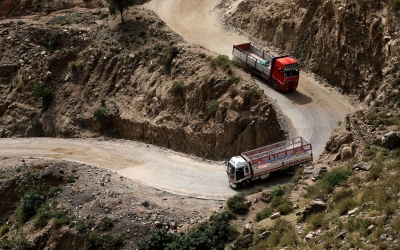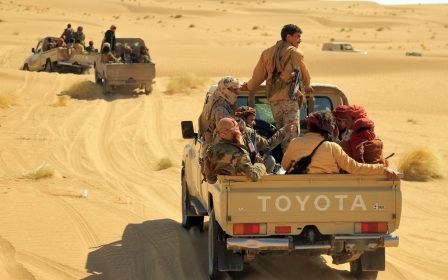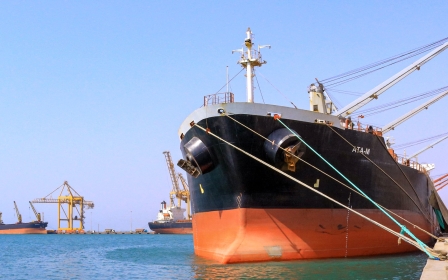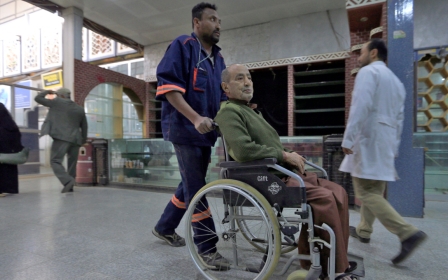Yemen: The increasing brutality of truck hijackers on the 'road of death'
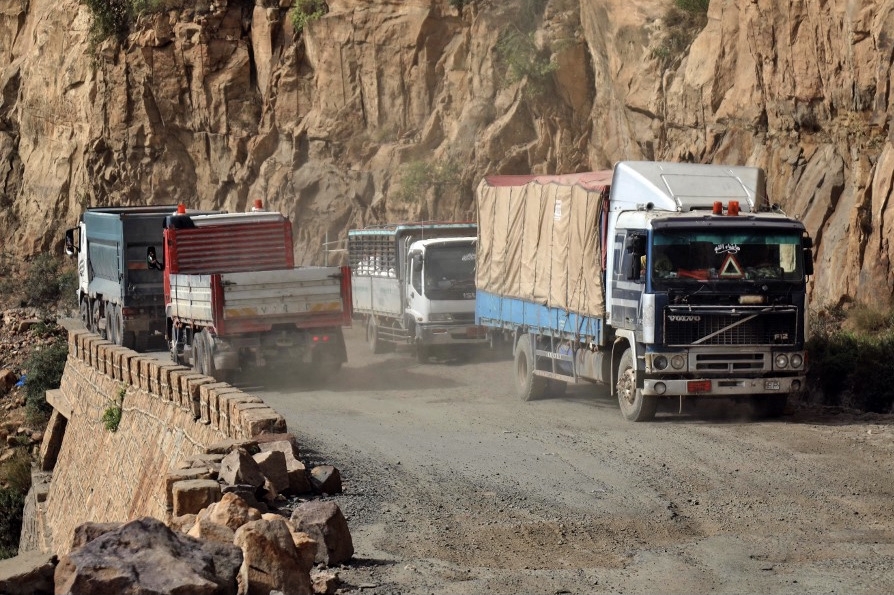
Mohammed, along with dozens of other Yemeni truck drivers, protested on Monday in front of the administrative offices of Taiz's al-Shimayateen district, demanding that the authorities arrest the hijackers who last week killed a child in Lahij.
Akram al-Azazi, 15, was shot dead on 2 June while sitting in the truck driven by his father, a driver who carries goods between Taiz and Aden.
The case created fury on social media and among Yemenis everywhere. Many truck drivers protested and stopped working for a day to express their anger. Some drivers are still on strike today.
'Five months ago, the hijackers stopped me and put a Kalashnikov to my head. I had no option but to give them all my money'
- Mohammed, truck driver
Mohammed, 53, who asked for his last name to be withheld for security reasons, has been driving trucks between Taiz and Aden for more than 10 years and believes that the route through the Lahij governate's Tour al-Baha region is the most dangerous one for drivers to use, with hijackings now commonplace.
The road has become the main one between Taiz and Aden, after the Yemen war closed other key routes.
New MEE newsletter: Jerusalem Dispatch
Sign up to get the latest insights and analysis on Israel-Palestine, alongside Turkey Unpacked and other MEE newsletters
"When we drive through Tour al-Baha, we feel that we will meet our fate at any time. This has been our suffering for years," Mohammed told Middle East Eye.
"Although we pay thousands [of rials] each trip for the security forces at checkpoints to secure the road, they don't do anything. When we tell them about the hijacking of our colleagues, they say they can't do anything."
Mohammed said that hijackings had been happening for years, and that the security forces used to chase the bandits, but they no longer did.
"Five months ago, the hijackers stopped me and put a Kalashnikov to my head. I had no option but to give them all my money and my phone. I just about convinced them to let me go with my truck," he said.
"I was lucky, but others like Azazi were killed while security forces did nothing."
Chewing qat together
The director of the Tour al-Baha district said in a video statement that he had provided the security forces in Lahij with the names of the hijackers, but that they hadn't done anything.
He accused the security forces in Lahij of supporting the hijackers, saying that they chewed qat together at security checkpoints.
A source in Tour al-Baha district confirmed that a campaign had been started to protect the road but that the killers of Azazi and other victims were still free.
"We know there is insecurity in some areas, and this is normal amid this situation, but security forces have been doing their best to protect roads in different areas," the source told MEE.
Mohanned is a taxi driver in his 40s who transports passengers between Taiz and Aden. He said the hijackings were not a new phenomenon but that the killings represented a sharp escalation in the levels of violence and brutality.
"Hijackers have been there for years in Lahij, but they used to loot cars, mobiles, money and other belongings. However, now they kill passengers," he told MEE.
"I call the Tour al-Baha road the road of death."
Mohanned said that when drivers faced hijackers, they usually tied to negotiate with them to not physically harm them and just take money, but he confirmed that the new ones were much more brutal.
"I have resorted to using an alternative road, which is through a valley and hard and long, but that is safer than sacrificing my lives and going along that dangerous road."
Mohanned said that other truck drivers avoided this alternative road as their trucks got damaged quickly, so they carried on using the road the hijackers favoured.
"When the trucks drive fast, the hijackers don’t dare to stop them, but when a truck breaks down or can't move very fast, it becomes a target for the hijackers."
Tribes
Some believe that the hijackers are backed by the tribes in Lahij province, but local residents deny that.
Ahmed al-Sobaihi, a Lahij resident, said that hijackers did not represent their tribes and they were not backed by any tribe.
"The hijackers have different kinds of weapons, and those are their own weapons, and they aren't weapons of a tribe, so this is the work of individuals," he told MEE.
"I think bad people are there in every province and tribe in the country, but we should talk about specific people and not a whole tribe or province."
He said that the road was safe at the moment because the security forces were stationed on it. He hoped that they would arrest the killers and send them to trial.
"We respect the law, and we hope that those who committed these crimes get punished so the whole country can be safe," Sobaihi said.
Middle East Eye delivers independent and unrivalled coverage and analysis of the Middle East, North Africa and beyond. To learn more about republishing this content and the associated fees, please fill out this form. More about MEE can be found here.


